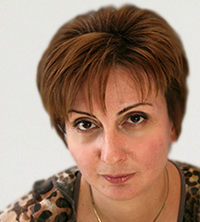
– Mrs. Davtyan, you are the author of a number of studies on teaching church-related subjects in public schools. Representatives of the Church liked to repeat that the Soviet generation was reared by the spirit of atheism and they decided to work with the new generation, for which the subject of “Armenian Church History” was introduced in schools. The representatives of that generation were mainly taking part in the change of power in Armenia in 2018 and the church received the main blow from them. It seemed that the younger generation educated in “church loving spirit” had to support the church, but what happened shows the opposite, the position of the church weakens. How would you comment on such a situation?
– The logic is clear, the same thing happened in the Soviet Union. For years, the Communist ideology was introduced into the people’s consciousness, through such an organized and powerful system of education, yet it did not save the USSR from the collapse, and Communist ideology – from falling and depreciation. With the same logic, the builders of the newly independent statehood of Armenia wanted to fill the vacuum that originated in the ideological and value system.
The former government had wide opened the doors of various institutions to the church so that it has state-paid employees in the army, the Ministry of Education, in hospitals ․․․ “Adoration for the church” and patriotism were identified. Under the nationalist ideals, the Christian system of values was smashed (what is being done by the Church can not be linked to the Christian system of values at all, but this is a deeper debatable question).
On the other hand, in modern conditions of information in Armenia and in the whole world there is a generation that is far from blindly believing in mystical, fantastic, unrealistic, phenomena. The meaning of “false fidelity” of religious rites has been preserved in human beings only as a historical-cultural, ethnic identification, ritual value, but without the Sacred Component.
Simultaneously, the students go through “Jurisprudence”, “Social Science” and other natural and applied subjects. They shape the child’s critical, legal and logical thinking, and you do not have to think that today the child is so naive that he can believe in the church that carries out medieval propaganda.
– In your opinion, the main problem is with the content of the subject or the methodology of teaching?
– And one and the other. When I entered the science field, in 2003, I was one of those who took the first steps in this area. According to my scientific hypothesis, imposing a religious predominance or affiliation in the school is simply unconstitutional because education in Armenia is secular. However, in the passage of somebody, the Law on Education stipulates the point of teaching Christian values and educating the students, which I personally consider right as our people are part of Christian civilization. For me, as a pedagogue of scientific thinking, it was a question of how to combine the principle of secularism with Christian education and how to create such a methodology and curriculum in order not to violate the Constitution, laws, child’s and civil rights. Children are more or less able to get acquainted with the Christian system of values with their age-appropriate methods and approaches (I emphasize the value system, not faith, religion, belief, or ritual).
Though many scientific researches are carried out today both in the Republic of Armenia and in the world, they are not reflected in the content, standards, subject programs and textbooks of the subject of “Armenian Church History”. And in the case of teaching methods, the teacher is restricted to that subject.
It would be right for high school students to get acquainted with different religions, their value systems, and teaching was organized exclusively by the methodology of critical thinking formation.